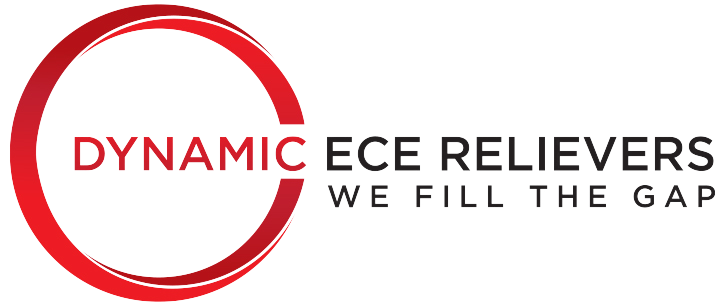Are you considering becoming an Early Childhood Education (ECE) Reliever? Or perhaps looking at relieving as your next exciting job prospect?
Whether you are a qualified ECE teacher looking for a flexible part-time job, or wondering if ECE is the career for you, relieving can offer you a world of possibilities. In this article I’m going to discuss five essential tips every ECE Reliever needs to know, to help make your relieving journey a success.
Working as an early childhood reliever is a great way to get to know the ECE industry. With a few simple tricks up your sleeve you’ll get consistent work at great early childhood centres. The next step? Consider studying ECE or move into full-time relieving, and enjoy a career where no two days are the same.

1. Get your name (and face!) out there
Having worked as an ECE Manager, I can tell you from first-hand experience that Managers often receive email after email from relievers asking for work. A tidy and well-presented CV is a good start but it’s even better to pay the centre a visit and put a face to the name.
If you lack qualifications or experience, visiting the centre and introducing yourself is a great way to show your passion and enthusiasm for the role.
Make sure you consider the busy role of the teachers, the flow of the children’s day and the Manager’s schedule.
The morning you are planning to visit, give the centre a call, explain you are available for relieving and ask if it would be okay to come down and introduce yourself.
Prepare to be flexible with your time, but generally avoid early morning, lunch-time and late afternoon. Transition times for children (drop-off and pick-up) are special times for teachers and parents to chat, and lunch-time is all about food and nap-time!
Mid-morning and mid-afternoon are great times to visit, it shows you respect and understand the work of the teacher’s and the routines of the children.
After your brief visit (10-15 minutes max, unless the teachers indicate you should stay), follow-up your introduction by sending through an email to the Manager. Thank them for their time, give a genuine compliment about their centre, and attach your CV. Trust me, the Manager will get back to you if you have made a positive impression!
2. Stay organised
This seems like a simple strategy, but one that can often be overlooked. There is nothing worse than double-booking yourself and leaving a centre without a reliever. This kind of practice will have you knocked swiftly off a centres reliever’s list and perhaps earn you a reputation (teacher’s talk!). Ensure you put all of your relieving jobs in your calendar as soon as you get them.
Make sure to let centres know exactly when you are available, to save them the time of unnecessarily contacting you. If you have an ongoing reliever position with one centre (for example, every Monday), then let other centres know the days you are available are Tuesday – Friday. If you need to pick your children up from school every day, let centres know you can work from opening shift until 3 p.m.
Bonus tip: Most centres require relievers for breaks cover (morning, lunch and afternoon tea for the teachers) and non-contact cover (where the teacher’s plan their programme and activities). These two roles can easily fit into school hours – keep a look out or let the Manager know you are happy to try these shifts.

3. Be available for all early childhood relief work (and ready for early mornings)
There’s no getting around this one - relievers need to be up and ready to go at a moment’s notice. Early childhood jobs are created around a need in society for children to be educated, loved and cared for in a home-away-from-home, often while Mum or Dad are at work. Consider working in your regular 9-5 job; your child will probably need to be booked into care from 8 a.m. – 5 p.m. at least!
This means relievers are often called before the centre opens (this can be from 7 a.m.) and asked if they can start for the opening shift. You need to be up and ready to take job when it comes in – even if that means saying “I’ll be there in half an hour” at 6.30 a.m.
4. Be a reliable early childhood reliever
The New Zealand Early Childhood Curriculum (Te Whāriki) acknowledges the importance of relationships in ECE between children and their kaiako (teachers). They identify that “children learn through responsive and reciprocal relationships with people, places, and things.” (You can read more about this here).
Though consistent full-time teachers provide a sense of belonging for tamariki (children), teachers have lives too! They need annual leave, non-contact time and sick-leave for themselves and their own children.
There is a huge need in ECE for reliable, consistent relievers who can return to centres weekly and fill in for teaching staff, becoming familiar with the routines, ethos and children in the unique environment.
While studying ECE, I worked as a long-term reliever for a local early childhood centre. After a few months I became part of the team; getting to know the staff, children and even the parents really well. While working as a reliever I became part of the centre’s whānau and was embraced in that crucial role.
Say yes to every job you are offered! Be reliable, consistent and flexible, and watch the jobs roll in.

5. Listen and watch
Finally, as a reliever, remember that you are there to support the role of the children’s full-time teachers.
ECE teachers spend hours planning for, observing, and documenting the children in their centres. Years of study was just the beginning for them, they keep their practice maintained through constant professional development and specialized discussions.
On top of all of this ECE teachers work hard every day to provide a nurturing, loving, and stimulating environment for children to play, learn, and grow. They look after those children like their own! Ask any ECE teacher and I’m sure they tell you every single child’s likes, dislikes, and just exactly how they like to be snuggled in for nap-time.
Watch and listen. Ask questions. Be a supportive, active participant in the day by asking what is needed and when you start to know the centre and the children, take initiative with activities. A reliever who respects and then supports the work of full-time ECE teachers is a treasured commodity.
Early childhood relief work is a wonderful chance to be a shining light in a child’s day, to give back to your community, to explore a career in ECE or to work hours that suit you and your family.
Take these five simple tips on board, get down to your local ECE centre and make your job as an ECE relief teacher a success.
